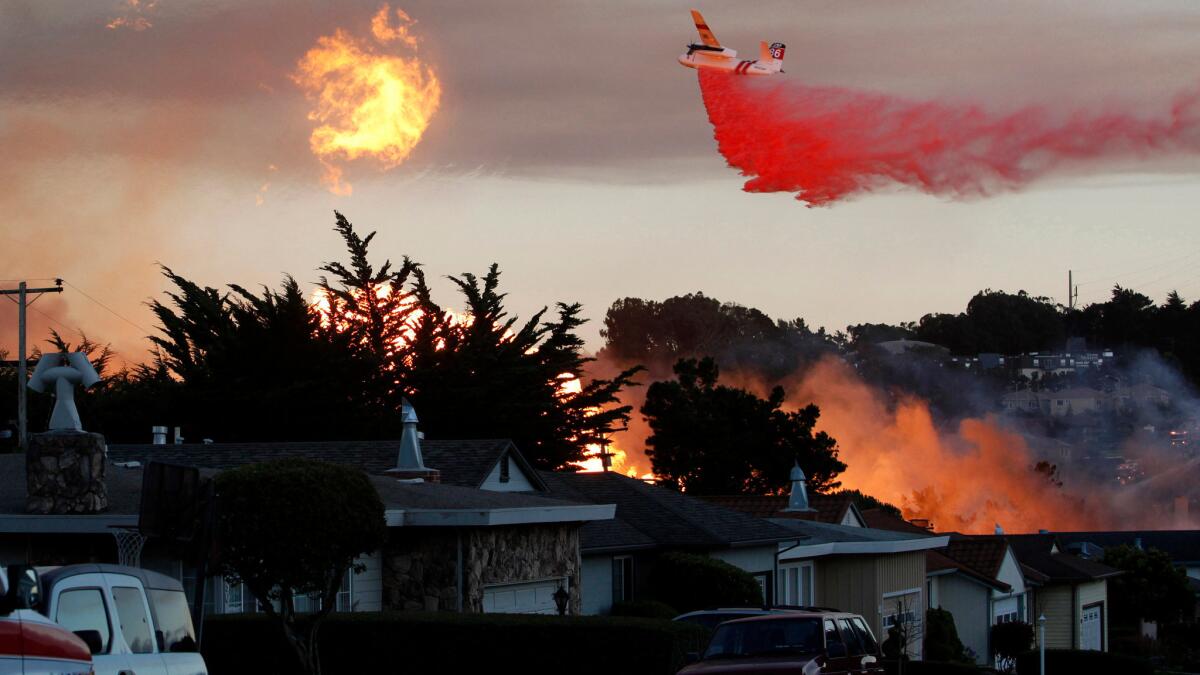Editorial: Conviction, but no real punishment, in San Bruno explosion case

- Share via
The conviction of Pacific Gas & Electric Co. in federal court on Tuesday puts to rest the question of whether the state’s largest investor-owned utility broke the law before a natural gas explosion that killed eight people, badly injured 58 others and destroyed 38 homes in the Bay Area community of San Bruno in 2010. It did.
Thanks to a strong case brought by federal prosecutors, a jury found PG&E guilty on five felony counts of violating pipeline safety laws and one felony count of obstructing the investigation into the explosion. But while the conviction is important because it helps make clear that the company was to blame in this terrible tragedy, it may not be as satisfying a resolution for those who lost homes, friends or loved ones as they had hoped. Or, for that matter, for people who want the utilities in their communities put on notice that if they violate gas pipeline safety rules, they could face real punishment.
That’s because there are no real consequences for any actual people in this case. No one will go to jail or be put on probation. In fact, not one PG&E executive was charged. Former PG&E chief executive and president Peter Darbee, who retired in 2011 with a $35-million payout, did not take the stand at the trial to explain what happened, and neither did other top executives. It was just the corporation itself on trial. And you can’t very well send a company to jail or sentence it to picking up litter on the side of the freeway.
“Nobody at PG&E is a criminal,” Steven Bauer, the utility’s attorney, said during the trial. Technically true, but in reality we all know that corporations can’t act on their own. It’s the people in the corporation who made the decisions that led to the criminality.
The judge in this case can impose a fine on PG&E of up to $3 million. And he should go for the maximum, even if it is little more than pocket change to the multi-billion-dollar corporation. Originally prosecutors had sought $562 million in fines, half of what they figured the utility saved by misclassifying high-risk pipelines so it could avoid paying for appropriate testing. But four days into jury deliberations, prosecutors dropped that demand and settled instead on $500,000 per conviction, which is the standard fine. For PG&E, it represents just a small cost of doing business.
The California Public Utilities Commission’s record $1.6 billion fine for pipeline violations probably hurt PG&E a little more. But even that did not serve as much of a warning to the company’s executives — because they don’t have to pay it themselves.
This is not to say the case wasn’t worth pursuing. Many people have long believed that PG&E was not properly maintaining its pipelines and now that’s been proven in court. But it’s frustrating as well to see, once again, how difficult it is to hold people accountable for misdeeds when they can hide behind the corporate seal.
Follow the Opinion section on Twitter @latimesopinion and Facebook
More to Read
A cure for the common opinion
Get thought-provoking perspectives with our weekly newsletter.
You may occasionally receive promotional content from the Los Angeles Times.










